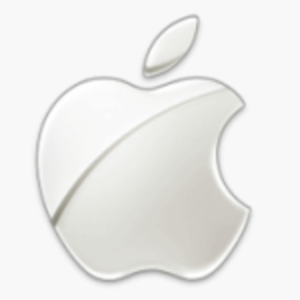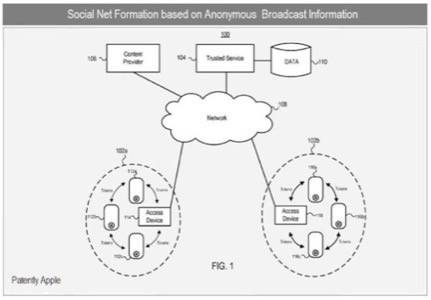Based on a patent filing that was published by the USPTO today and first discovered by Patently Apple, Apple could soon enter the location-based social networking market. The patent, which was filed in September 2008, describes a scenario where a group of users with mobile devices like the iPhone come together at an event like a concert, wedding, political rally or trade show. Normally, you would have to collect personal information from all the attendees you meet and then transfer this data manually into your existing social network if you want to stay in touch with them. Apple’s patent, however, describes a system where all of the devices in a specific location can automatically become part of a new social network based on their location. The patent filing refers to this service as iGroups.

This could, for example, allow event organizers to provide attendees with additional content and services during the event and after it is over. The exchange of this information would be brokered by trusted devices at the event and information about the social network can be stored in the cloud and exchanged with other services.

Turning Ad Hoc Networks into Permanent Social Networks
As Apple notes in the patent (“Group Formation Using Anonymous Broadcast Information “), technologies like Bluetooth personal area networks allow modern cell phones to easily create ad hoc networks, but it is virtually impossible to recreate this network at a later time for users to continue their discussions or exchange additional content.
In a very detailed example, Apple’s patent describes how iGroups could automatically detect that a group of users is in or around a specific location (in the example, this event is Apple WWDC 2008). The iGroups service could then invite all the attendees to join this group and create a permanent social network for everybody who was in attendance and opts in to the group.
Will Apple Actually Do Anything With This Patent?
This, of course, isn’t Apple’s first patent for a location-based service. As with all of Apple’s patents, it remains to be seen if the company will actually release any product based on this filing. Given Apple’s position in the mobile market, however, it wouldn’t come as a surprise if the company decided to turn some of these patents into actual product.





















